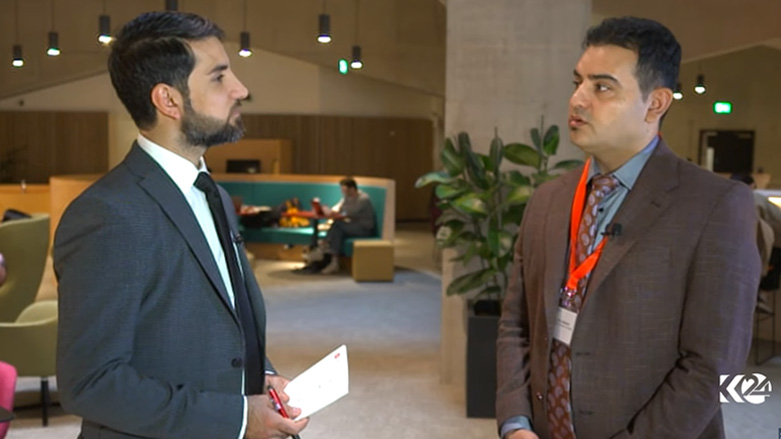Return migration of Kurdish diaspora to Kurdistan Region resumed, says researcher

ERBIL (Kurdistan 24) – Following a halt to the return of the members of the Kurdish diaspora community in 2014 to the Kurdistan Region, the phenomenon has resumed, although to a lesser degree, according to a Duhok-based researcher speaking to Kurdistan recently.
Director of the Center for Peace and Human Security at the American University of Kurdistan (AUK) in Duhok, Jiyar Aghapouri, whose research concerns gender, migration, and labor, said the remarks during an interview with Kurdistan 24 on Monday on the sidelines of the first Kurdish Studies Conference held at London School of Economics on April 24-25.
An intense wave of return migration from Western countries to the Kurdistan Region took place during the years between 2007 and 2014 before the rise of the Islamic State terror group in Iraq, Aghapouri told Kurdistan 24 London Correspondent Dilovan Emadaldin.
The phenomenon “completely stopped” for four years, as the Kurdish region faced an existential threat from the extremist group, the researcher added.
As an academic discipline, the subject concerns the repatriation, assisted, and voluntary return of immigrants to their places of origin. Most of the Western countries are home to the Kurdish diaspora for decades, fleeing the former repressive Iraqi regimes and in search of better economic opportunities.
Thanks to the economic boom Iraq’s Kurdish region experienced following the collapse of Saddam Hussein’s regime in 2003, thousands of members of the Kurdish diaspora community returned to the Region, where they started working in various sectors.
The return is now with a lesser degree, Aghapouri added.
Most of the returnees are now working in the education and health sectors, he said.
At the conference, Mr. Aghapouri also took part in a panel titled Gendered Labor Migrations in the Kurdistan Region of Iraq (KRI).
The Kurdish Peshmerga forces with the backing of the international coalition against ISIS fought a three-year battle against the ISIS militants, whose caliphate was brought down in the country in 2017.
The war and the political disagreements between Erbil and Baghdad on oil and gas had significantly contributed to the decline of the Kurdish region's financial well-being, according to government officials.
Additional reporting by Kurdistan 24 London Correspondent Dilovan Emadaldin
